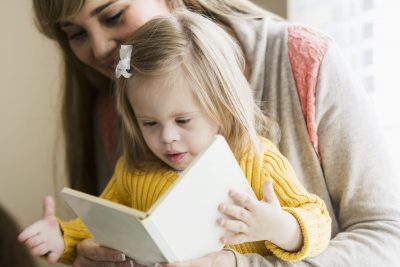Standard 5: Sample Syllabi and Learning Activities

Sample Syllabi
This sample syllabus provides ideas for resources, activities, readings, and assignments, aligned with the Initial Practice-Based Professional Preparation Standards for Early Interventionists/Early Childhood Special Educators (2020) and DEC Recommended Practices (2014). Consider state and university policies and add them as appropriate. This is a sample only and is not a complete syllabus; nor is it intended to suggest that the Standard would be addressed in only one course in the curriculum.
Learning Activities
The projects or assignments require learners to apply the practices/skills related to Standard 5: Application of Curriculum Frameworks in the Planning and Facilitation of Meaningful Learning Experiences. Since these are application activities, they most align with the evidence-based practices for adult learners of authentic learning, reflection, guidance, performance feedback, and follow-up activities. The sample learning activities are organized by the two components for Standard 5.
Component 5.1
- Reflective Journal and Summary
- Maintain a journal and reflect on activities, interactions, and events in the practicum setting with the partner family, and partner preschool or early childhood classroom. Reflect on topics, readings, discussions, and class activities specific to Standard 5: Application of Curriculum Frameworks in the Planning and Facilitation of Meaningful Learning Experiences. The journal entries should demonstrate your self-awareness and self-reflection about your work with children and related roles within the practicum setting as well as professional growth within the knowledge areas addressed. A minimum of 15 different class readings (articles or chapters) should be cited in the journal. Write in the journal once a week, on average. The journal should be available for the instructor to look at during on-site visits.
- Near the end of the semester, prepare a brief (2-4 page) summary of the major themes discussed in the journal and what was learned over the course of the semester. Consider the following types of questions when writing in the journal and preparing the summary:
- What have I observed? What are the implications of the observation when reflecting on curriculum frameworks and meaningful learning experiences for children?
- What worked (be specific with describing the experience)? What did not work? Why did or did not it work? What could I do differently? What are other ways to do this? How might that have influenced the outcome?
- What beliefs did my actions reflect?
- What did I do well? What areas do I need to improve?
- What did I learn about the child, the family, and/or myself as an interventionist/educator?
- How did I apply perspectives or ideas discussed in class and in the course readings to my work in the practicum setting? How effective are these ideas or perspectives? How comfortable am I applying the perspectives or ideas?
- In what ways have my beliefs and/or perspective been challenged because of the class and the field experience?
- In what ways have my beliefs or perspective been supported by this class and the experiences in the practicum?
- Activity Plans with Family Partner
- Prepare, implement, and evaluate three activity plans that incorporate collaboration with the partner family. The activities should allow children with varying abilities and learning needs to participate in meaningful ways.
- The activities should be appropriate to the children’s age-related needs, respond to the interests of the child as observed by the student and discussed with the family, fit the definition of authentic activities, and occur within the context of the typical daily schedule. Consider a wide range of learning contexts and experiences such as free play activities (e.g., shoe store, washing babies, building roads and bridges), daily routines (e.g., brushing teeth, snack time), and community-based outings (e.g., grocery store, park, library).
- Develop plans for the three activities, implement them, and provide a reflective evaluation of the implementation of each plan. Reflections should address recommended practices and guidelines provided in readings and class handouts and materials.
- Activity Plans with Preschool/Classroom Partner
- Prepare, implement, and evaluate three activity plans that incorporate collaboration with the partner preschool or classroom. The activities should allow children with varying abilities and learning needs to participate in meaningful ways.
- The activities should be appropriate to the children’s age-related needs, respond to the interests of the child as observed by the student and discussed with the classroom teacher, fit the definition of authentic activities and occur within the context of the typical daily schedule. Consider a wide range of learning contexts and experiences such as free play activities (e.g., shoe store, washing babies, building roads and bridges), activities within learning centers (e.g., dramatic play, blocks, art, sensory), daily routines (e.g., snack time), field trips, circle time or large group activities, and small group activities.
- Develop plans for the three activities, implement them, and provide a reflective evaluation of the implementation of each plan. Reflections should address recommended practices and guidelines provided in readings and class handouts and materials.
Component 5.2
- Curriculum Modifications
- Review one lesson in the partner preschool/classroom and provide two to three curriculum modifications that address issues or challenges that will support all abilities to access the lesson in a meaningful way. Modifications may include the use of assistive technology, alternative/augmentative communication devices, or special equipment; as well as modifications of the environment, materials, or activities; addressing child preferences; providing adult, peer, or invisible support; and addressing sensory/regulatory needs of the child.